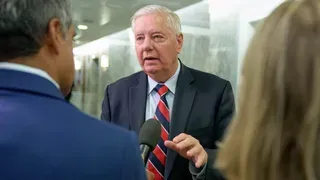January 16, 2008
Colombia to Get Same-Sex Partnerships
Steve Weinstein READ TIME: 2 MIN.
Colombia is poised to become the second Latin American nation to recognize same-sex couples after Uruguay. The Washington Post (which, incidentally, inaccurately reported that Colombia would become "the first country in Latin America to extend such rights to gay couples"), noted that the lower house of Colombia's Congress approved the bill 62 to 43 after intense lobbying by gay-rights activists.
Scott Long, who directs gay-rights programs for Human Rights Watch in New York, told the Post that the vote was an indirect slap at the United States, where lawmakers are falling over themselves to add single-sex marriage "protections" to state constitutions, and where a national "Defense of Marriage Act" passed Congress and was signed by then-President Bill Clinton.
"It should definitely be an example to the United States," Long said. "Colombia is a country that's Catholic, with a conservative government, and they still recognize that this is the right thing to do."
What Colombia lacks, however, is a powerful Evangelical movement. The Catholic Church has done its own efforts against such measures, but that church has essentially not been as vociferous as American fundamentalist Christians. The president of Colombia, Alvaro Uribe, is himself a conservative practicing Catholic, and he has indicated he will sign the bill into law.
A Colombian gay activist attributed the success to shifting the debate from gay rights to fundamental human rights. "This argument was never based on moral or religious grounds, even though the detractors always went to the religious and moral arguments," said Elizabeth Castillo. Human rights has become something of a mantra in South America, which has emerged from centuries of dictatorships.
Other Latin American capital cities have passed gay-rights measures before Bogata, which is nevertheless a thriving gay Mecca, with gay neighborhoods, an active bar scene and politically active.
Steve Weinstein has been a regular correspondent for the International Herald Tribune, the Advocate, the Village Voice and Out. He has been covering the AIDS crisis since the early '80s, when he began his career. He is the author of "The Q Guide to Fire Island" (Alyson, 2007).





